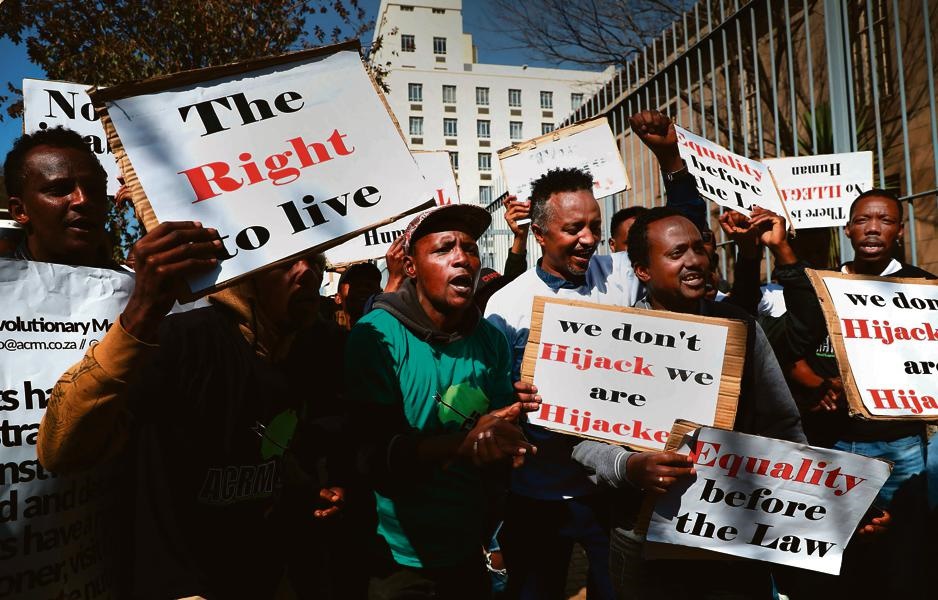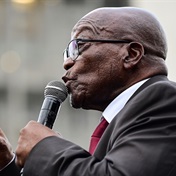
No matter how inconvenient it may be for the state, foreign migrants are not the root cause of our troubles, write Jo Vearey and Gina Snyman
Once again, South Africa finds itself entangled in a web of dangerous discourse that is used and abused by political leaders, public commentators, the police, the media and the wider public to justify xenophobic violence.
The convenient – and factually incorrect – scapegoating of foreign migrants for the failure of the state to respond to the needs of its citizens continues to fuel anti-foreigner sentiments.
One such commentator applying this dangerous discourse is Modidima Mannya, who, as expressed in City Press last week [We continue to pretend, September 15 2019] believes that “[foreign nationals] are the root cause of [South Africa’s] troubles”.
Read: Foreigners fight our police, challenge the state’s authority. It is unheard of
For Mannya to suggest so is unfounded and inflammatory.
We don’t know if this is either the result of his own ignorance or if it’s a deliberate attempt to employ the divisive tactics of using foreigners as scapegoats responsible for all failures of the state.
But we do know that Mannya is implicitly condoning xenophobic violence.
His voice reflects an increasing tendency for lazy reporting and public commentary on issues relating to international migration and xenophobia.
But it is even more serious than that.
He reinforces the sentiments of many South Africans whose perceptions of non-nationals are worsened by anti-foreigner rhetoric that continues to be spewed by commentators such as Mannya, and by political leaders at local and national levels.
The evidence, however, is clear. No matter how inconvenient it may be for the state, foreign migrants are not the root cause of our troubles.
Even Johannesburg mayor Herman Mashaba, whose anti-foreigner sentiments are well established, acknowledged that “foreign nationals buy goods in our country, establish businesses and stimulate economic growth. They also contribute their skills and experience in sectors of our economy where they are needed.”
Mannya’s ill-informed suggestion that “it cannot be unreasonable for South Africans to demand that foreign nationals not take their jobs, overcrowd their hospitals, benefit from their social housing policy or get social grants” contributes to the increasingly tired tactic of scaremongering and using foreign nationals as scapegoats for the failures of the state.
This dangerous discourse is used by those contesting leadership at a local level to mobilise and organise violence targeting foreign migrants.
Research clearly indicates that the xenophobic violence witnessed here is “a result of deliberate community organising and mobilisation by local leaders” who make use of supposedly democratic structures and processes to gain power in politically contested spaces.
This fact is counter to the convenient imagery that is regularly evoked by political leaders and the police of a violent citizenry who sporadically and randomly resort to violence as a result of their frustrations.
Suggesting that South Africans are this indiscriminately volatile is not only disingenuous and disrespectful, it is dangerous because, ultimately, it legitimises xenophobic violence.
Mannya suggests that “many other countries are cracking the whip and dealing with these issues as we continue to pretend that they are not our modern calamities”.
Encouraging South Africa to apply an even more restrictive immigration management regime is misplaced.
Let’s not forget that South Africa has anything but a good track record when it comes to applying its supposedly progressive refugee act – it takes anywhere from one to 10 years for a decision to be made, but it should be six months.
The already restrictive immigration act – and the white paper on international migration – supports the idea of an increasingly securitised immigration regime, removing long-term refugee protection and permanent residence.
With his staggering generalisations imputing criminality to all foreigners, Mannya has conflated South Africa’s dire application and enforcement of law with the management of immigration.
Foreign migrants, according to Mannya, are “obliged to reciprocate [support from South Africa] by respecting our values and not creating problems for us”.
It would be helpful if Mannya could direct us to the support he believes international migrants receive from the state – we are not aware of any.
Asylum seekers and refugees receive no support from the state and are expected to settle themselves, work and integrate into South African society.
While the small number of recognised refugees are eligible for welfare grants, they are assessed in the same way as citizens.
They are not eligible for RDP housing.
Other international migrants – including those on visitor, work and study permits – cannot access grants, must have private medical aid, are not eligible for bursaries for higher education and struggle with school registration.
These visas are restrictive and obtaining them is a minefield.
South Africa is anything but welcoming towards foreign migrants, and the department of home affairs places all conceivable obstacles in the way of people seeking “regularised migration across the socioeconomic spectrum”.
But there is one thing that Mannya got right: “The reality is that we are nowhere near solving our troubles unless we confront the real issues.”
On this we agree.
But the real issues we identify, based on more than a decade of research and practice in the fields of migration and refugee law, are far from those proposed by Mannya.
The real issues are associated with allowing – and encouraging – dangerous discourse to infiltrate our political and public spaces as this ultimately fuels and justifies locally organised and coordinated xenophobic violence.
This is to the detriment of all in South Africa.
Our political leaders and public commentators have a responsibility to do better and need to be held to account.
Vearey is director and associate professor at the African Centre for Migration & Society at Wits University, and Snyman is an advocate and a member of the Johannesburg Bar




 Publications
Publications
 Partners
Partners








